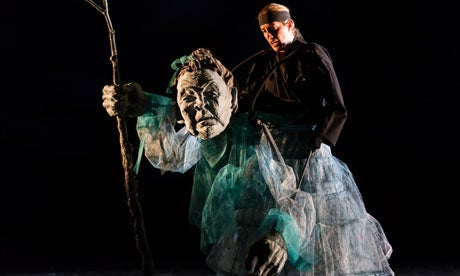A Night at the Chinese Opera, ****; British Youth Opera, Peacock Theatre, **

Judith Weir’s ‘A Night at the Chinese Opera’ may be twenty-five years old, but it still sounds fresh - a tribute to the fact that she’d found a new operatic language which nobody has capitalised on since.
She slips from modal to chromatic to diatonic scales as the mood of the drama demands, and she pastiches bel canto, Messiaen, and Stravinsky - and traditional Chinese theatre music - with accomplished ease.
By nature a miniaturist, she plays intricate games with instrumental timbres, and puts voices and orchestra into a novel relationship. Her word-setting of her own libretto has sharp precision, with the orchestra starting and stopping as though in lock-step with the singing, thus creating the effect of a radio abruptly turned on and off.
This brightly-coloured vehicle showed off the talents of British Youth Opera and the Southbank Sinfonia led by Lionel Friend at their considerable best.
Stuart Barker’s production of this folk tale within a folk tale has a shoestring charm which gives free rein to the cast’s musical and comedic talents, with Catherine Backhouse, Peter Kirk, Johnny Herford, and the Protean Louise Kemeny pre-eminent.
But despite its age this opera should still be treated as a work in progress: if a dramaturge were to come in and clarify the plot - and beef up the damp-squib ending - it could be transformed from a discreet succès d’estime into a durable classic.
Nicholas Hytner’s take on ‘The Magic Flute’ is one of the most durable productions in the business, and it’s now started what ENO insist is positively its final run.
But from the moment the lights go up on Tamino in the toils of his serpent, it’s clear something is wrong.
This Tamino (Shawn Mathey) doesn’t wrestle, he stands inertly; the ensuing scene with the Three Ladies doesn’t spark as it should; Papageno (Duncan Rock) is a debonair narcissist with an Aussie twang; Nicholas Collon’s conducting desperately lacks finesse, and the general level of singing is undistinguished apart from a wonderfully spot-on trio of trebles.
This incarnation of Hytner’s show (under revival directors Ian Rutherford and James Bonas) is thus shorn of all its original airy magic. None of which is any reason to junk the show. Junk the people in charge.
Join our commenting forum
Join thought-provoking conversations, follow other Independent readers and see their replies
Comments